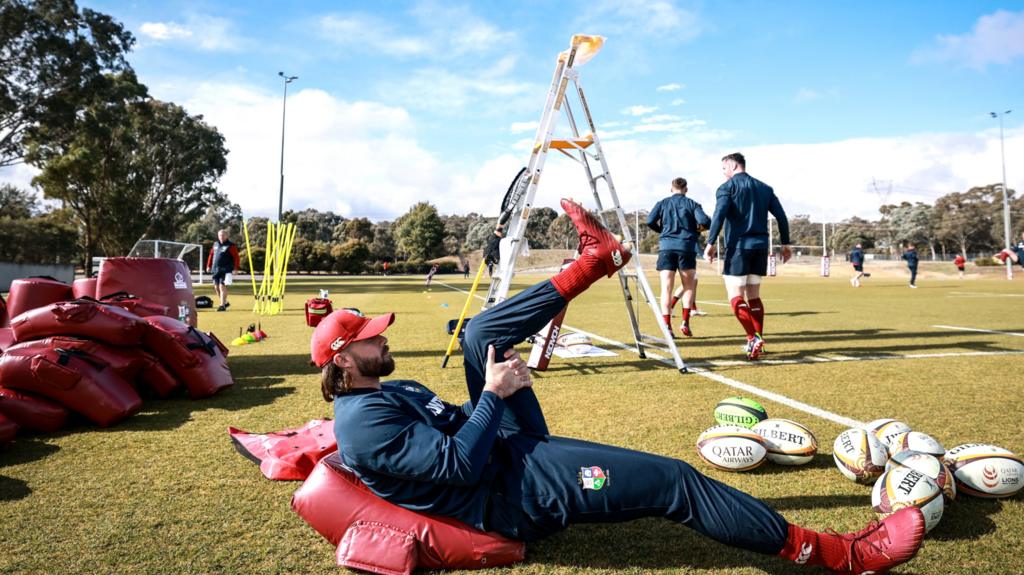Day’s prior experience includes serving as logistics manager for the England national team.
Third Test: Australia v British and Irish Lions
Date: Saturday 2 August Venue: Accor Stadium Kick-off: 11:00 BST
Coverage: Live text commentary and post-match analysis on BBC Radio 5 Live, BBC iPlayer and online
The challenge of uniting players from four nations, devising a cohesive strategy in a matter of weeks, and performing at peak level on foreign soil defines a Lions tour.
A Lions tour presents a unique set of circumstances for both players and coaches.
However, for the support staff operating behind the scenes, the compressed schedule, extensive travel, and inherent unpredictability can create a complex logistical landscape.
Safely in Sydney for the tour’s final leg, Tom Day is part of the team responsible for ensuring seamless operations.
“Transporting a playing squad and backroom team to and from the southern hemisphere, and then navigating the touring country itself, is a significant undertaking,” explains Day, the team’s logistics manager.
Mirroring the on-field team, the logistics staff represents a collaborative effort across the four nations.
Operations director Charlotte Gibbons is seconded from England’s Rugby Football Union, while kit manager Mark Beels typically works with Scotland.
A primary concern is managing the Lions’ substantial equipment – nearly 10 tonnes were transported to Australia.
This includes four identical sets of training gear, strategically distributed throughout Australia. Upon arrival at each location, the Lions find a container of equipment, including a scrum sled, ready for their training preparations.
One set was transported the 2,390 miles from Perth to Sydney, a distance comparable to London to Siberia, ensuring timely availability. In total, the logistics plan encompasses 53 separate truck journeys, covering approximately 7,000 miles.
The Nations Pod – Final Test week
‘Lions need whitewash to be lauded for decades’ – Dawson column
Morgan produced ‘perfect’ clearout – Owens
“One set of kit is always positioned ahead, ensuring that upon arrival in a new city, the equipment, hotels, and training facilities are already in place,” Day elaborates.
Day also forms part of an advance team, working in conjunction with a security team member, to preemptively address any unforeseen challenges identified since reconnaissance trips in September and January, ensuring a seamless arrival for the players.
Following Saturday’s third Test in Sydney, the Lions will return home with a series victory, but without their equipment.
The equipment will remain in Australia and be donated to local clubs and schools, rather than being shipped back to Dublin.
The Lions have contested nine matches across six cities in Australia over a five-week period.
The extensive travel associated with a Lions tour inevitably results in a significant carbon footprint.
A round-trip flight from London to Sydney generates approximately 2,484 kg of carbon dioxide per passenger solely from fuel consumption. Emissions released at high altitudes are also nearly three times more harmful than those at ground level.
The Lions have pledged to offset all carbon emissions, external generated by the tour party’s travel, fan travel, and team business operations, at a cost exceeding £250,000.
Get the latest updates from the Lions tour
Listen: Sport’s Strangest Crimes – Bloodgate
Listen to the latest Rugby Union Weekly podcast

